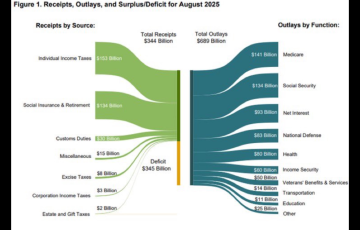When developers start whispering about a game-changer in blockchain architecture, it’s time to pay attention. Bitcoin Solaris (BTC-S) is that game-changer. Unlike countless altcoins recycling old models, BTC-S is building a future-focused system from the ground up. And now, it’s catching the attention of serious builders, especially those from Chainlink and beyond. At the core of this rising buzz is a powerful truth: Bitcoin Solaris isn’t trying to replace Bitcoin. It’s expanding what Bitcoin could have been, and it’s doing so with unmatched efficiency and vision.
What Bittensor Gets Right… and Where It Stops
Let’s be fair. Bittensor’s TAO token made waves with its AI integration and network incentives. It introduced new frameworks for value in decentralized intelligence. But it’s now clear that TAO is bumping into architectural ceilings. Scalability issues, lack of multi-layer optimization, and a narrow focus on AI utility are real bottlenecks. For Chainlink developers looking for long-term building ground, BTC-S offers something TAO doesn’t: speed, flexibility, and a full dual-consensus engine ready for real-world scalability.
Introducing Bitcoin Solaris: The Blueprint for Blockchain’s Next Chapter
Bitcoin Solaris is redefining what a next-gen blockchain should look like. Its architecture runs on a hybrid consensus model that merges Proof-of-Work (PoW) on the Base Layer with Delegated Proof-of-Stake (DPoS) on the Solaris Layer. The Base Layer uses SHA-256 and is optimized for traditional mining rigs. Meanwhile, the Solaris Layer activates 21 validators every 24 hours, with fast 15-second blocks and a max size of 32MB, ensuring instant finality and high-volume smart contract execution.
This blend is not theoretical. It’s built for action.
- Dual-layer throughput: Up to 100,000 TPS on the Solaris Layer
- 2-second transaction finality: Supports complex, real-time apps
- Validator rotation and slashing: Ensures performance and integrity
- PoW base anchoring: Resistant to long-range and 51% attacks
Developers from every sector: DeFi, gaming, healthcare, and AI, can build with high assurance, thanks to state anchoring and synchronized validation. It’s the infrastructure Chainlink nodes dream of.
Built to Outlast Hype, BTC-S Is the Infrastructure of the Future
Bitcoin Solaris Mining: The Future of Accessible, Scalable Crypto Mining
What sets BTC-S apart isn’t just the tech, it’s how that tech reaches people. Mining used to mean warehouses full of ASICs. Not anymore. Through the exciting release of the upcoming Solaris Nova App, BTC-S has transformed mining into something universal.
- Cross-platform compatibility: From mobile to browser, BTC-S fits all devices
- Energy efficiency: Optimized algorithms adjust for device type and load
- Biometric security: With advanced analytics and in-app wallet control
- Gamified engagement: Leaderboards, rewards, and educational tools
Want to see how much you can earn daily? Try the mining calculator and get a glimpse of real income through inclusive mining.
Technical Edge with Mass Appeal
While BTC-S is pushing limits under the hood, it’s also building an ecosystem that feels intuitive. Developers can deploy Rust-based smart contracts, initially using familiar Solana tools. And the use cases go far beyond speculative trading.
- DeFi infrastructure: DEXs, lending, cross-chain asset swaps
- Enterprise-grade solutions: Tokenized real estate, digital identity, carbon credits
- IoT and gaming: Real-time micropayments, decentralized device markets
- On-chain governance: DAOs with fast, secure voting mechanisms
Security? BTC-S has it covered with Byzantine Fault Tolerance, validator slashing, zero-knowledge proof options, and public dashboards for total reward transparency.
No wonder influencers are calling it one of the most exciting projects in 2025. As seen in the detailed review by Crypto League, the buzz isn’t just about vision. It’s about execution.
Tokenomics That Actually Make Sense
Most crypto projects throw together tokenomics that serve the team or VC interests. BTC-S flips that model on its head. With only 21 million tokens in total, the focus is on mining rewards and community incentives.
- 66.66% for mining
- 20% for presale
- 5% for liquidity
- 2% each for ecosystem, community rewards, staking, and marketing
- 0.33% for the team and advisors
This structure ensures wide distribution and long-term decentralization. For more, check the official tokenomics section.
Presale Surge: The Wealth Creation Phase Is Now
We’re in Phase 8 of the presale, and the numbers speak for themselves:
- Current Price: $8 (Next phase: $9)
- Launch Price: $20
- Bonus: 8% for early access
- Return Potential: Up to 150%
- Time Left: Only about 6 weeks until July 31, 2025
- Community Momentum: Over 11,500 users joined, and more are pouring in daily
This isn’t just a token sale. It’s one of the shortest and most explosive presales the crypto market has seen, already raising over $5 million with zero slowdown.
Final Verdict: A Project Chainlink Devs and Smart Investors Can’t Ignore
Bitcoin Solaris isn’t a sidechain or a layer-2 experiment. It’s a complete reimagining of decentralized infrastructure that gives builders the security of Bitcoin, the speed of Solana, and the economic inclusiveness of mobile-first mining. For Chainlink developers watching the landscape, BTC-S offers a cleaner slate, faster execution, and better architecture than what Bittensor ever promised.
If you want to build, earn, or invest in what’s coming next, you might want to start here.
For more information on Bitcoin Solaris:
Website: https://www.bitcoinsolaris.com/
Telegram: https://t.me/Bitcoinsolaris
X: https://x.com/BitcoinSolaris
The post Chainlink Developers Take Notice: Bitcoin Solaris Dual-Consensus Makes Bittensor Look Outdated appeared first on Finbold.

